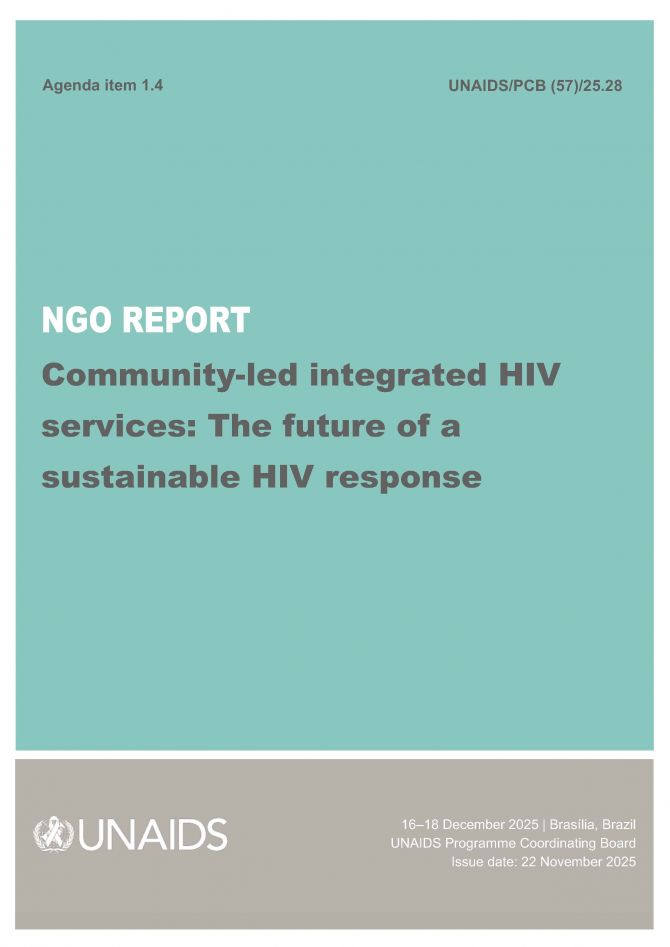





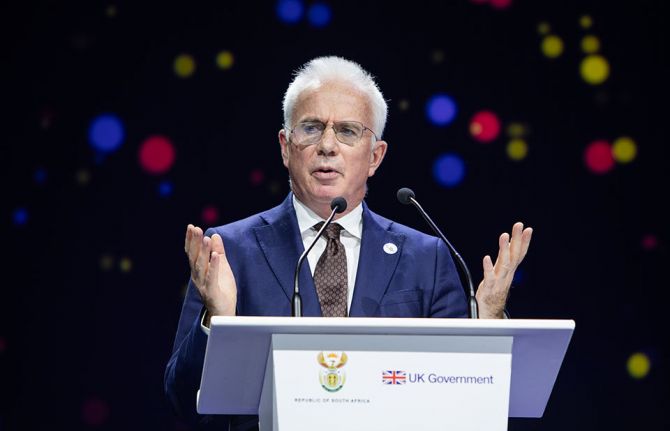
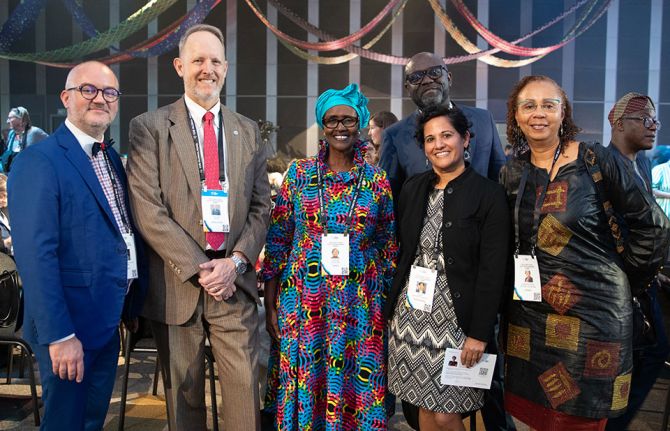
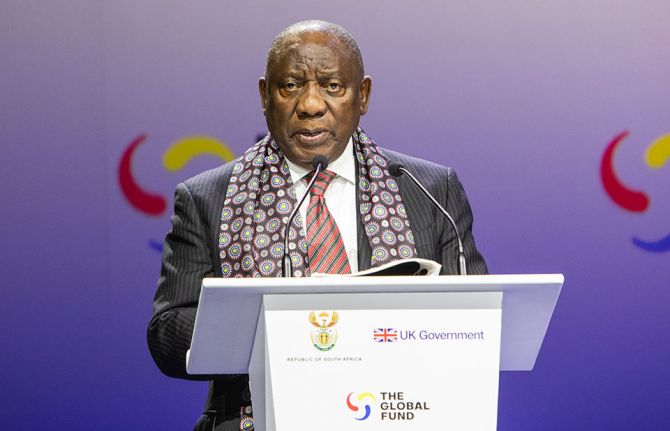
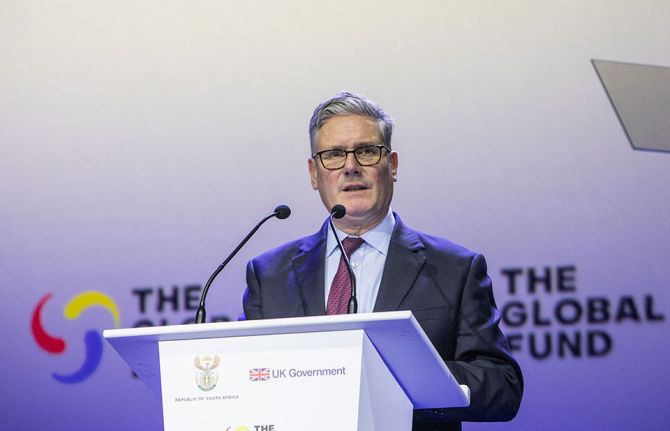
Press Release
UNAIDS applauds strong demonstration of global solidarity at the eighth replenishment of the Global Fund to Fight AIDS, TB and Malaria
24 November 2025 24 November 2025JOHANNESBURG/GENEVA, 24 November 2025—UNAIDS welcomes the important pledges from donors for the Global Fund to Fight AIDS, Tuberculosis and Malaria (Global Fund), at its eighth replenishment conference held in Johannesburg, South Africa on 21 November. The event, co-hosted by President Ramaphosa of South Africa and Prime Minister Starmer of the United Kingdom, was held on the margins of the G20 Leaders’ Summit.
Partners around the world pledged US$ 11.34 billion to sustain the fight against AIDS, tuberculosis and malaria which will save millions more lives, and strengthen systems for health. This is a significant achievement and a powerful demonstration of global solidarity in the face of uncertainty and massive disruptions to the HIV response.
“AIDS is not over,” said Winnie Byanyima, UNAIDS Executive Director. “We commend donors for this strong show of support. These pledges will help protect future generations and accelerate progress toward ending these epidemics. But we must go further—our shared goal is US$18 billion, and we look forward to additional pledges to close the gap.”
UNAIDS thanks South Africa and the United Kingdom for hosting this historic Replenishment—the first ever held on the African continent. African countries, themselves, recipients of Global Fund grants, collectively pledged US$ 51.59 million, reaffirming their commitment to financing their own health systems and driving innovation.
The Global Fund’s new approach—embracing agile, country-driven partnerships and mobilizing domestic resources—aligns with UNAIDS’ vision of shared responsibility and sustainability. These investments will not only save lives but also strengthen health systems, bolster economic stability, and advance global health security.
UNAIDS calls on all partners to maintain momentum and ensure resources are swiftly translated into programmes that reach people in need. UNAIDS stands together with the Global Fund. With essential data to guide the Global Fund’s investments, with policy reform at the country level, and with prevention at the centre, we can overcome the disruption to the global HIV response and we can end AIDS.
UNAIDS
The Joint United Nations Programme on HIV/AIDS (UNAIDS) leads and inspires the world to achieve its shared vision of zero new HIV infections, zero discrimination and zero AIDS-related deaths. UNAIDS unites the efforts of 11 UN organizations—UNHCR, UNICEF, WFP, UNDP, UNFPA, UNODC, UN Women, ILO, UNESCO, WHO and the World Bank—and works closely with global and national partners towards ending the AIDS epidemic by 2030 as part of the Sustainable Development Goals. Learn more at unaids.org and connect with us on Facebook, Twitter, Instagram and YouTube.
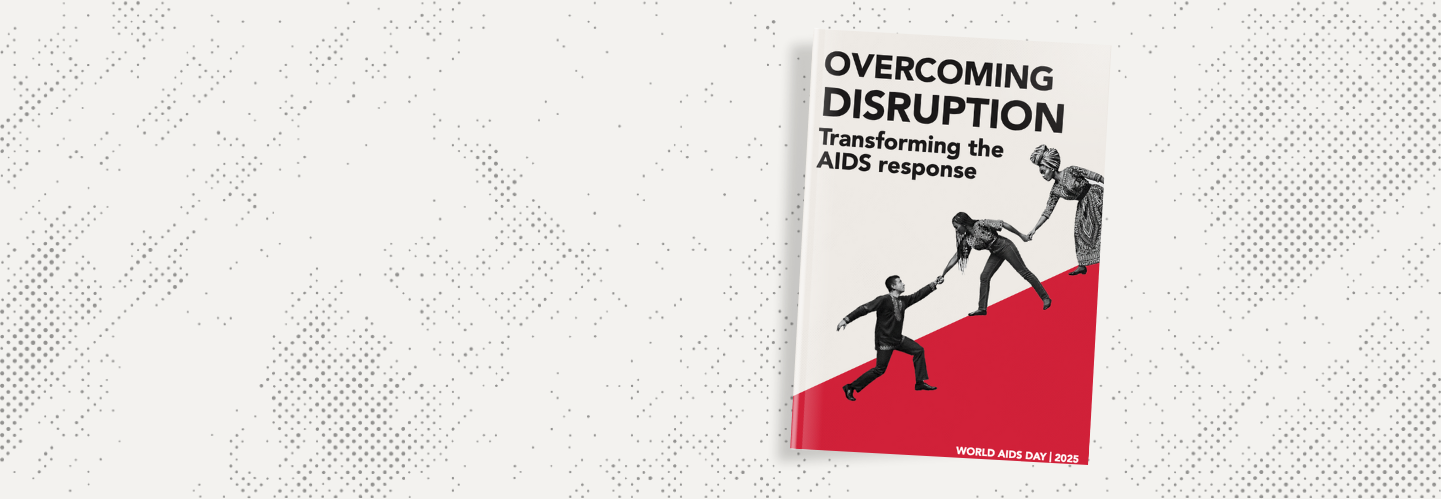


Press Release
UNAIDS Executive Director Winnie Byanyima, speaking at G20 Summit, welcomes Leaders’ Declaration
22 November 2025 22 November 2025GENEVA/JOHANNESBURG, 22 November 2025 — UNAIDS Executive Director Winnie Byanyima today addressed G20 leaders on global inequalities, and welcomed the Declaration agreed at the summit.
The declaration includes a call to action from the G20 on what it labels “deepening inequality” and calls for greater action to improve the world’s future health security and address today’s pandemics like AIDS. G20 leaders highlighted the constrained "fiscal space” for low- and middle-income countries and called for comprehensive and coordinated action on debt vulnerabilities as well as for increased sustainable financing for health and tackling disease, through domestic revenue and through the Global Fund to Fight AIDS, TB, and Malaria. They highlighted the opportunity to increase access to medicines through the WHO Pandemic Agreement. The declaration also reaffirms the centrality of the United Nations in achieving these goals.
Ms Byanyima addressed the G20 heads of state today and the G20 Health Ministers earlier this month. She did so as a part of Extraordinary Committee of Independent Experts on Global Inequality commissioned by President Ramaphosa, presenting its report and proposal for an International Panel on Inequality today, and at the health ministerial with the Global Council on Inequality, AIDS, and Pandemics, which called for a debt standstill and new financing facility, reformed access to new medicines, and a focus on social determinants and communities.
Ms Byanyima praised South Africa putting for “putting the issue of inequality at the very heart of the international agenda.” Ms Byanyima paid tribute to President Ramaphosa for “lighting the way to a world that is both fairer and safer. I am a proud African once again today.” She praised G20 leaders for taking up elements of the agendas of the Extraordinary Committee and Global Council in today’s statement and called on them to translate today’s words into action. “Concrete action is needed now on reducing inequality, on suspending and restructuring debt, and on financing the global response to AIDS and the pandemics of today and tomorrow.”
/ENDS
Notes to Editors
The G20 Leaders’ Declaration is at https://g20.org/wp-content/uploads/2025/11/2025-G20-Summit-Declaration.pdf
The report of the Extraordinary Committee of Independent Experts on Global Inequality is at
https://g20.org/wp-content/uploads/2025/11/2-G20-Global-Inequality-Report-Full-and-Summary.pdf
The report of the Global Council on Inequality, AIDS, and Pandemics is at

